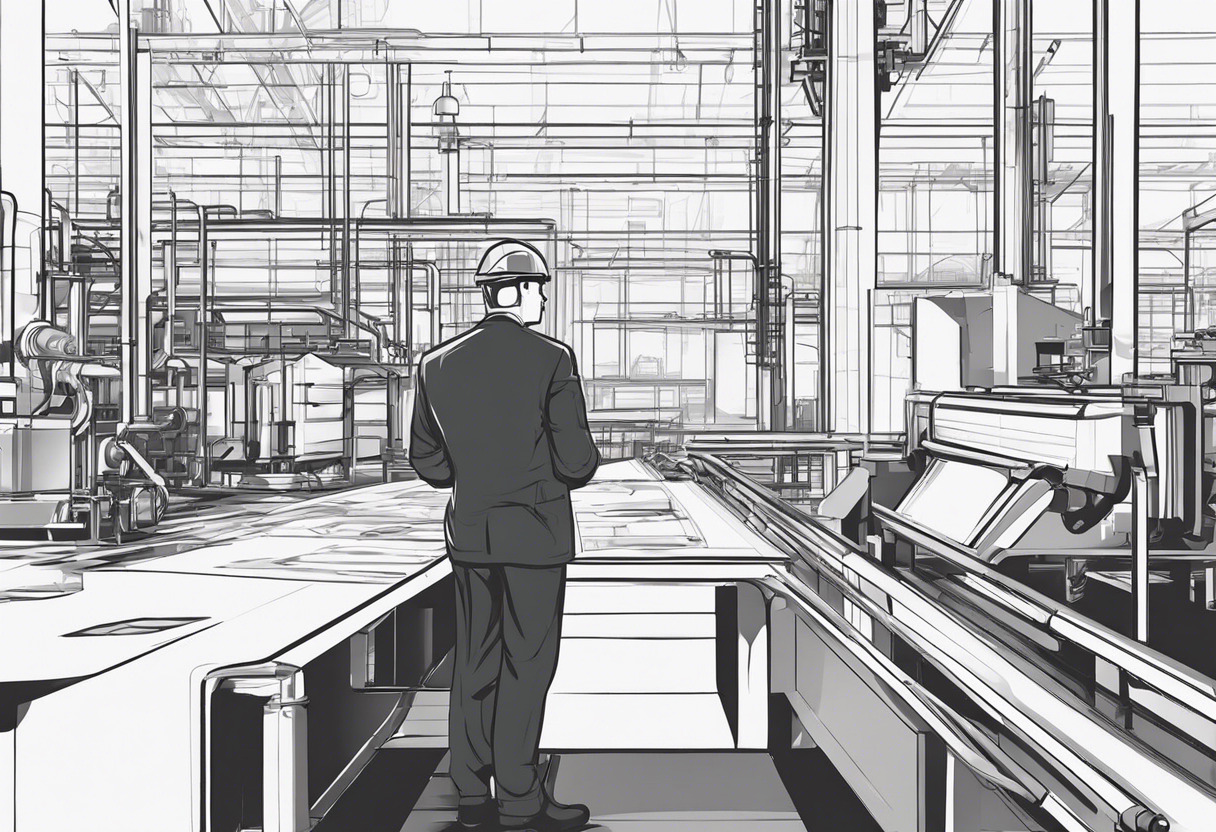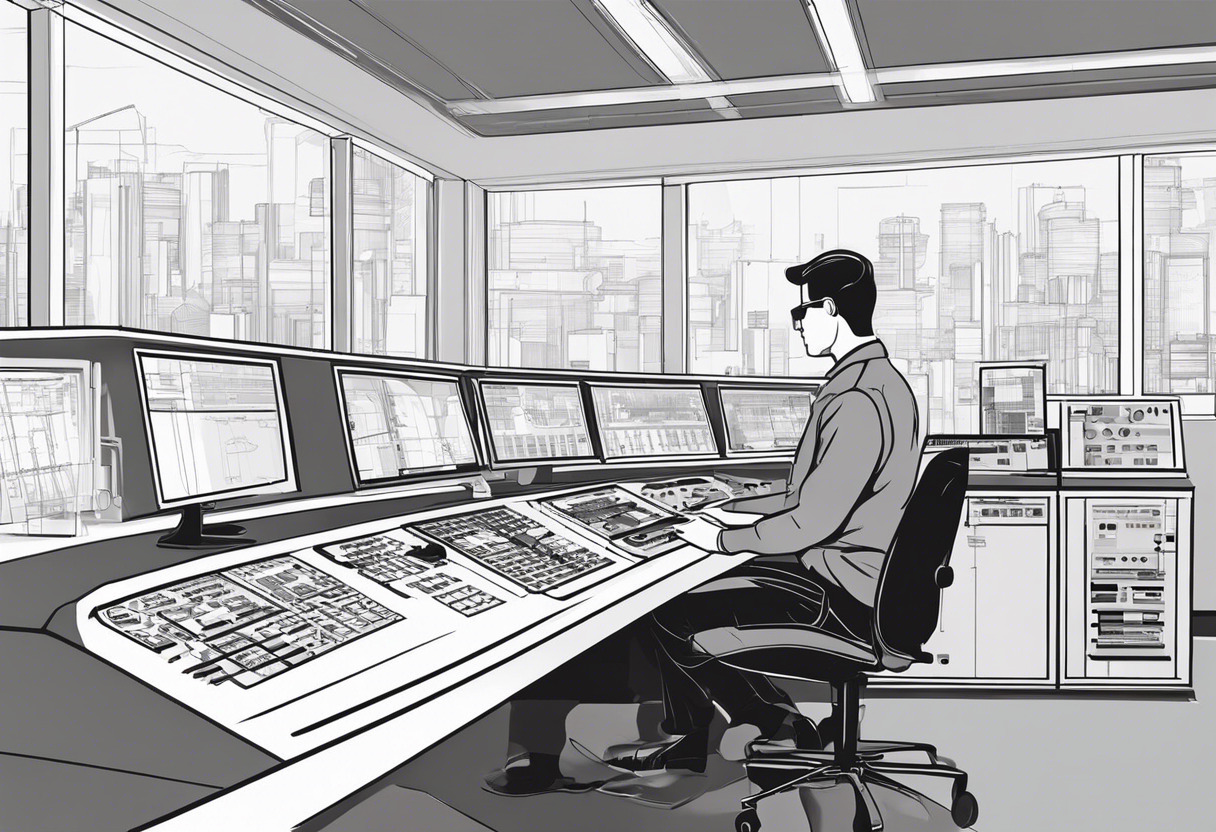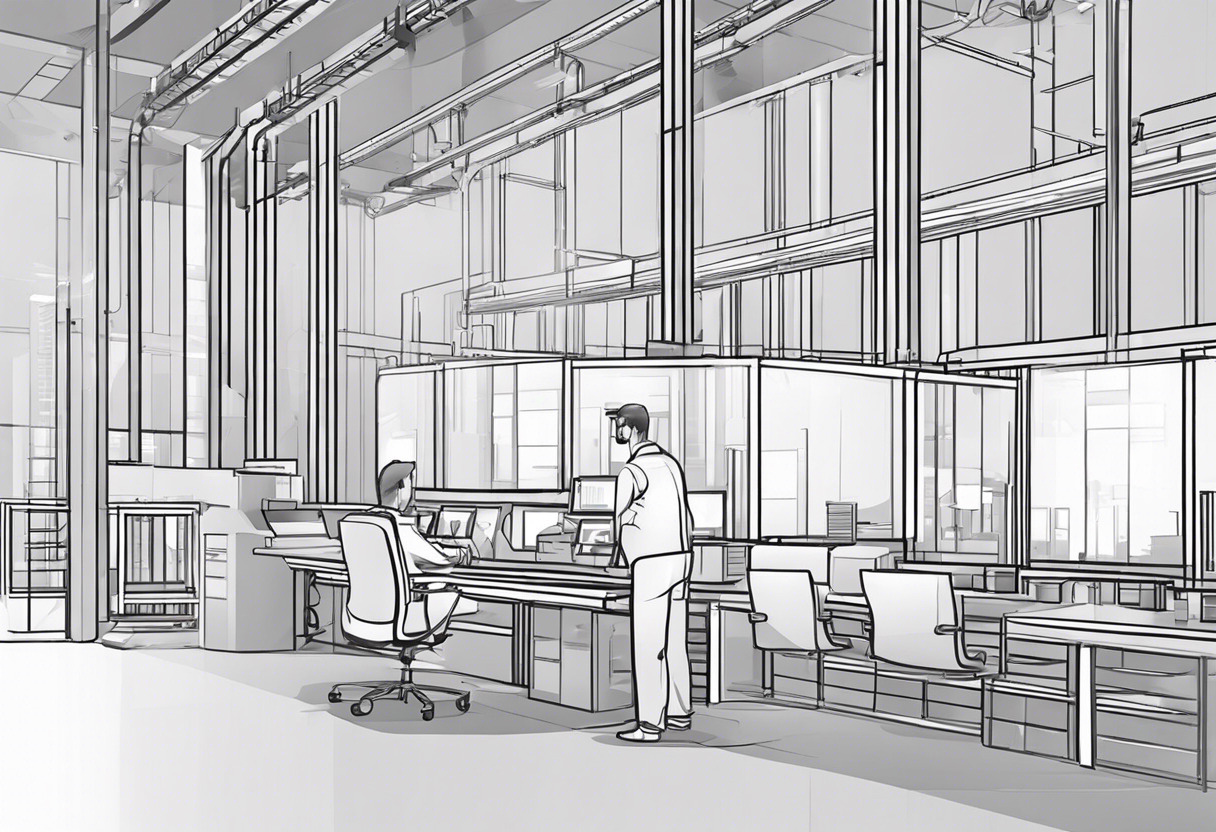Opt for SCADA when overseeing complex, network-wide industrial processes for improved efficiency and detection of obstacles. Choose DCS for advanced process control in sizable facilities, emphasizing safety, production enhancement, and ease of maintenance.

Key Differences Between SCADA and DCS
- Control Focus: SCADA centralizes control of a complete network, while DCS distributes functions across numerous elements.
- Application: SCADA excels in controlling industrial processes across local/remote locations. DCS shines in advanced process control in larger facilities.
- Future Projection: SCADA is evolving towards incorporating 5G networks, quantum computing, AI and ML. DCS focuses on integration and support for existing industry architectures.
- Cyber Security: SCADA has higher cybersecurity concerns due to its widespread and interconnected system.
| Comparison | SCADA | DCS |
|---|---|---|
| Definition | Computer application monitoring and controlling a plant or equipment at the supervisory level. | Automated control system distributing functions across numerous elements. |
| Use | Automates complex industrial processes, detects and correct problems, measures trends over time. | Manages and controls processes in industries; enables individual control, reporting, and monitoring components in process plants. |
| Main Components | RTU, sensors, control relays, SCADA master units, communication channels. | Engineering workstation, operating station, process control unit, communication system, smart devices. |
| Industries Served | Energy, Food and beverage, Manufacturing, Oil and gas, Power, Recycling, Transportation, Water and wastewater. | Power generation, Oil and gas industry, Water treatment, Pharmaceuticals and biotech, Manufacturing, Infrastructure. |
| Structure | Depends on RTUs or PLCs for site control and Human Machine Interface for master station. | Uses a centralized operator supervisory control; structure mitigates single processor failure effects. |
| Future Direction | Will incorporate 5G networks and quantum computing; edge computing, artificial intelligence, and machine learning. | Continuing modifications, upgrades, and integration to existing industry architecture. |
What Is SCADA and Who’s It For?
SCADA, or Supervisory Control and Data Acquisition, is a computer application designed for the control and monitoring of complex industrial processes. At its core, it serves as a centralized system capable of overseeing a complete network, automating intricate industrial operations, identifying problems, and tracking trends. Its components include Remote Terminal Units (RTUs), sensors, control relays, SCADA master units, and communication channels. SCADA is the linchpin of industries including water and waste control, energy, oil and gas refining, transportation, and telecom.
SCADA is suited for organizations and industries seeking efficient and secure monitoring and control of their plant or equipment. It’s vital for those needing to track real-time data, regulate local/remote industrial processes, and record significant events into a log file.

Pros of SCADA
- Offers centralized monitoring and control for a network
- Automates complex industrial processes
- Has wide applications across numerous industries
- Incorporates future technologies like 5G Networks, Quantum Computing, Edge computing, AI and Machine learning
Cons of SCADA
- Potential cybersecurity concerns due to integrated systems
- Legacy SCADA systems have limited options for support
What Is DCS and Who’s It For?
Distributed Control System (DCS) is an automated control system that disperses control functions across an array of elements, and is expected to see its global total revenue increase to $23.37 billion by 2025. DCS is instrumental in managing and controlling processes, and its applications include power generation, oil and gas industry, water treatment, pharmaceuticals and biotech, manufacturing, and infrastructure. Pivotal in processing management, DCS enables individual control, reporting, and monitoring of components in process plants.
DCS is for organizations requiring a centralized supervisory control, desiring increased reliability and reduced installation costs. It’s particularly beneficial to large facilities necessitating improved control of extensive processes and dealing with substantial I/O points.

Pros of DCS
- Enables decentralized control principle
- Supports modifications, upgrades and integration to existing architectures
- Increases safety and process efficiency
- DCS structure mitigates single processor failure effects
Cons of DCS
- Potential for high installation costs
- May be less practical for smaller applications compared to PLC
SCADA or DCS: The Tech Verdict
The face-off between SCADA and DCS systems ultimately boils down to your unique demands and applications. Here’s a bespoke rundown:
Industrial Monoliths
If you’re an industrial giant aiming to automate comprehensive processes, monitor trends, and identify issues on a supervisory level, SCADA is your undisputed choice. Its robust mechanism gives a bird-eye view of the entire network, while its wide application in diverse industries like oil, gas, transportation, and water management ups your efficiency game.

Process Control Enthusiasts
For those engrossed in process management, your quest ends with DCS. This system excels in controlling, reporting, and monitoring components in process plants and acts as a centralized operator control, ensuring reliability with minimized installation costs.

Emerging Technocrats
The future-forward technocrats keen on integrating Edge computing, AI, or Machine Learning, the scalable and interoperable nature of SCADA systems is primed to accommodate your evolving needs. However, remember to account for the cybersecurity concerns that surface with more connected systems.

Advanced Process Managers
Aiming for advanced process control and handling substantial I/O points? DCS comes out on top as the go-to choice, notably suited for extensive facilities with its interaction optimization amongst multiple controllers.

If you wish to efficiently govern large-scale industrial processes, SCADA demonstrates sterling competence. However, for a more decentralized control principle in managing processes, DCS steals the limelight. Your choice hinges on the extent and complexity of your operations.
Logan Bellbrook
Content writer @ Aircada with a knack for nature & AR/VR/XR. Blogging the intersection of tech & terrain.





